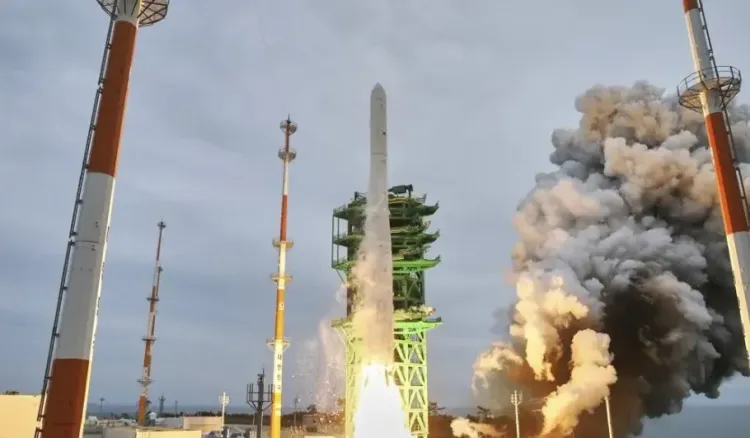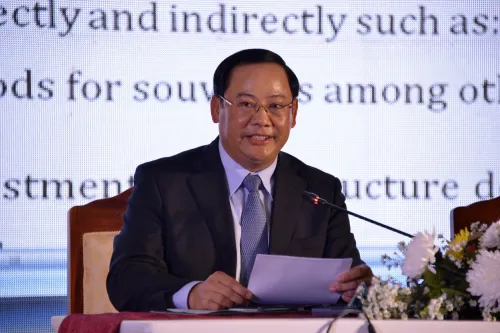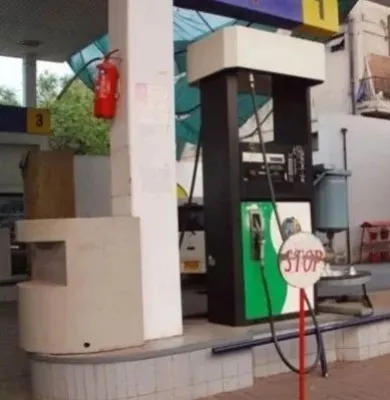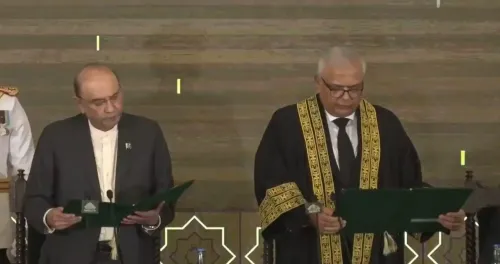When is South Korea Launching the Nuri Space Rocket?

Synopsis
Key Takeaways
- Nuri space rocket launch set for November 27.
- First launch since the establishment of the KASA.
- Rocket will carry a main payload and 12 smaller satellites.
- 2026 budget raised to 1.11 trillion won focusing on space advancements.
- Launch to occur from the Naro Space Center.
Seoul, Sep 30 (NationPress) The Korea AeroSpace Administration (KASA) announced on Tuesday that the date for the fourth launch of the nation's indigenous Nuri space rocket has been officially set.
The Nuri, also referred to as the Korea Space Launch Vehicle II (KSLV-II), is slated for launch on November 27, as reported by Yonhap news agency.
This date was confirmed after a launch management committee convened last week, along with a separate meeting to discuss the transfer of the main payload, which is a next-generation mid-sized satellite.
According to KASA Administrator Yoon Young-bin, "This launch marks the first since the creation of the space agency." He further stated, "We will guarantee meticulous preparations and collaborate as a unified team to ensure success."
The backup launch window is scheduled from November 28 to December 4.
The rocket is set to lift off from the Naro Space Center located in the southern coastal village of Goheung between 12:54 a.m. and 1:14 a.m., with the precise timing to be confirmed the day before, according to the report.
In addition to the main satellite, the rocket will also transport 12 smaller satellites, which are expected to arrive at the space center by the end of October.
Earlier this month, KASA disclosed plans to increase its 2026 budget by 15 percent from this year, bringing it to 1.11 trillion won (approximately US$7.98 billion), with a focus on satellite development and lunar exploration.
KASA indicated that the proposed funding would target six key areas, including enhancing space transportation capabilities, acquiring new technologies, advancing satellite-based communication, navigation, and observation, and promoting future space industries through exploration, as reported by Yonhap.
The allocated budget for satellites will rise by 24.4 billion won to reach 236.2 billion won. This includes 6.2 billion won earmarked for developing ultra-high-resolution imaging satellites and projects related to 6G-based low-orbit satellite communications.
Conversely, the budget for space transportation will see a reduction of 46.4 billion won, or 14.9 percent, bringing it down to 264.2 billion won, following the conclusion of the Nuri rocket program and delays in the nation's next-generation launch vehicle project, according to KASA.









